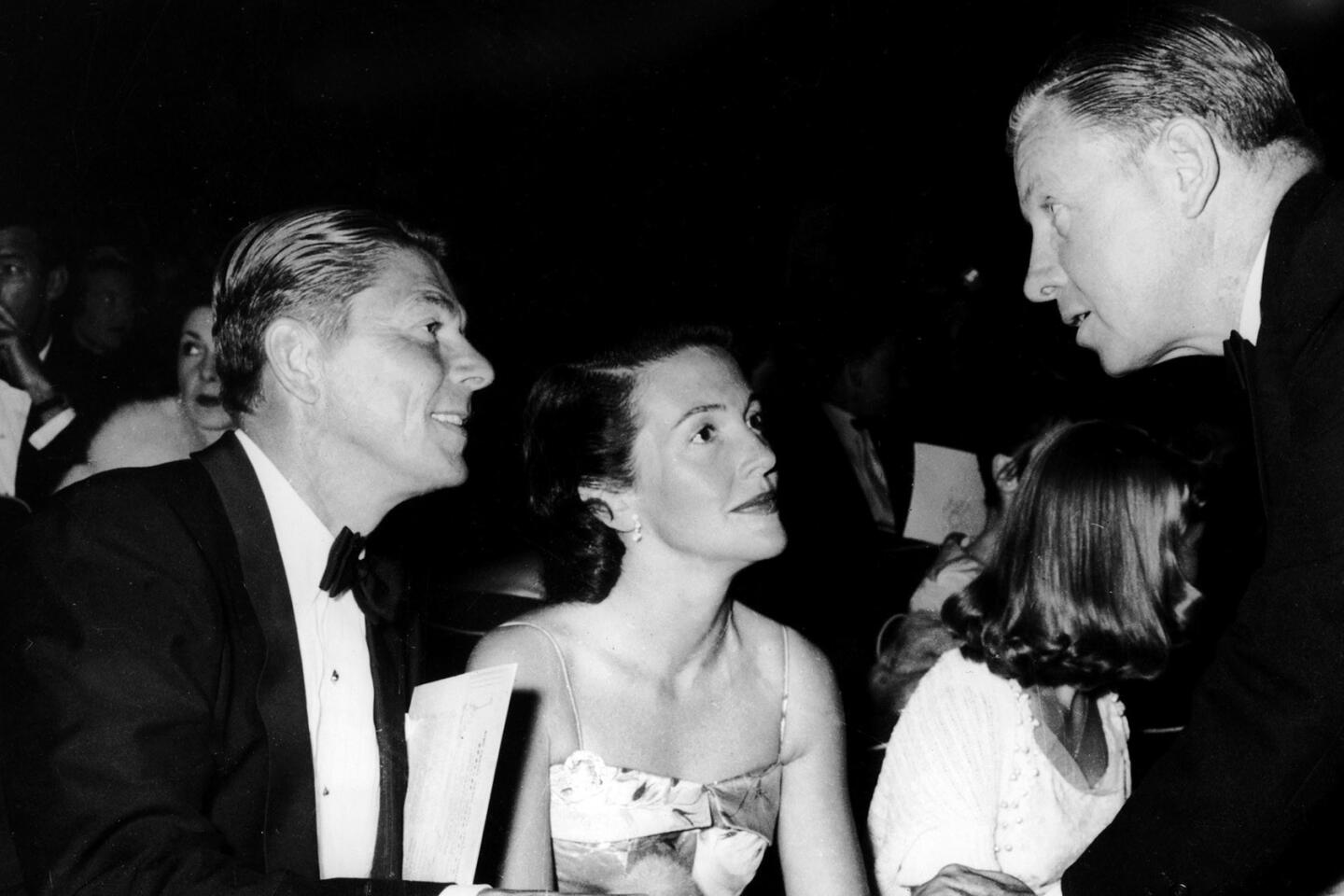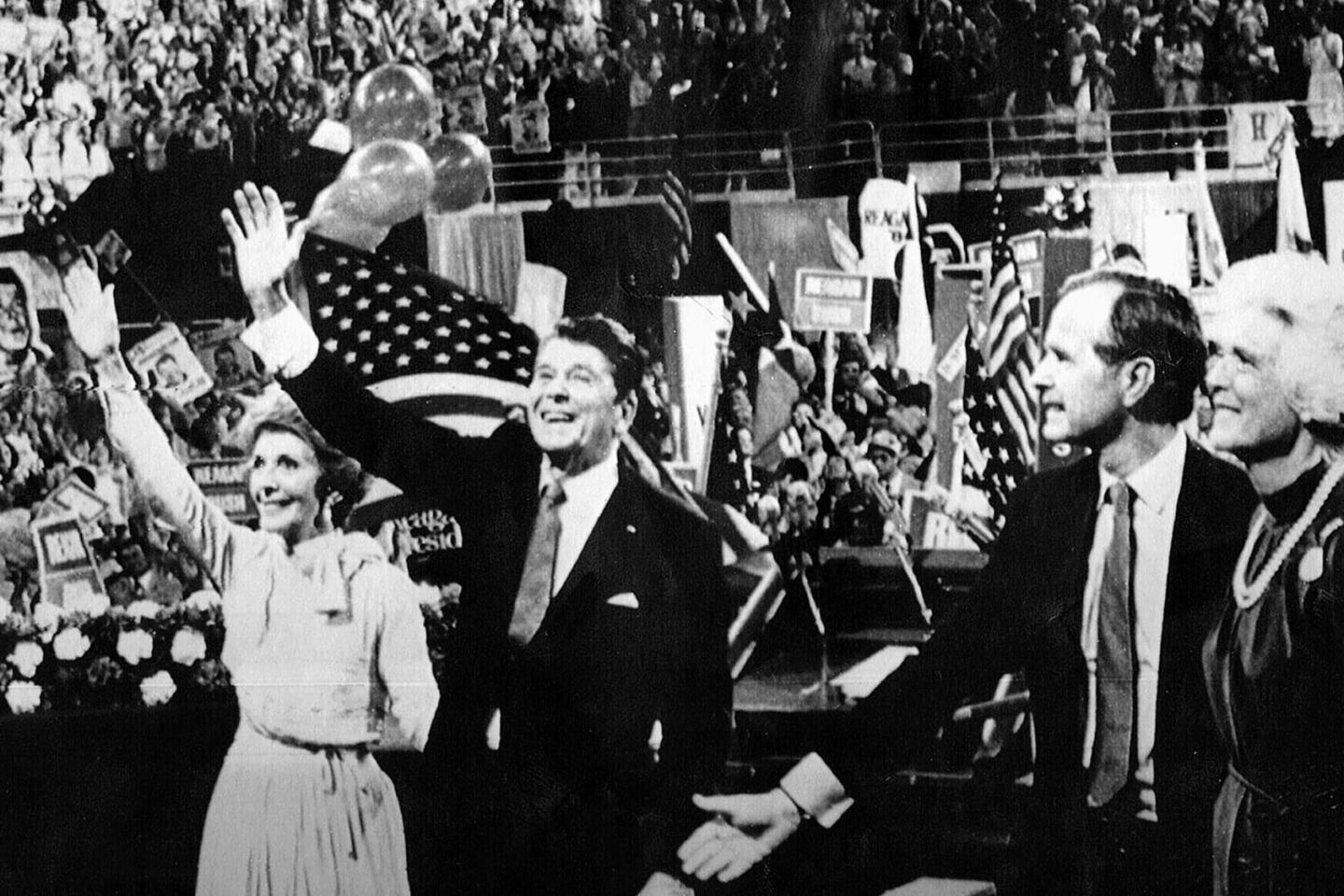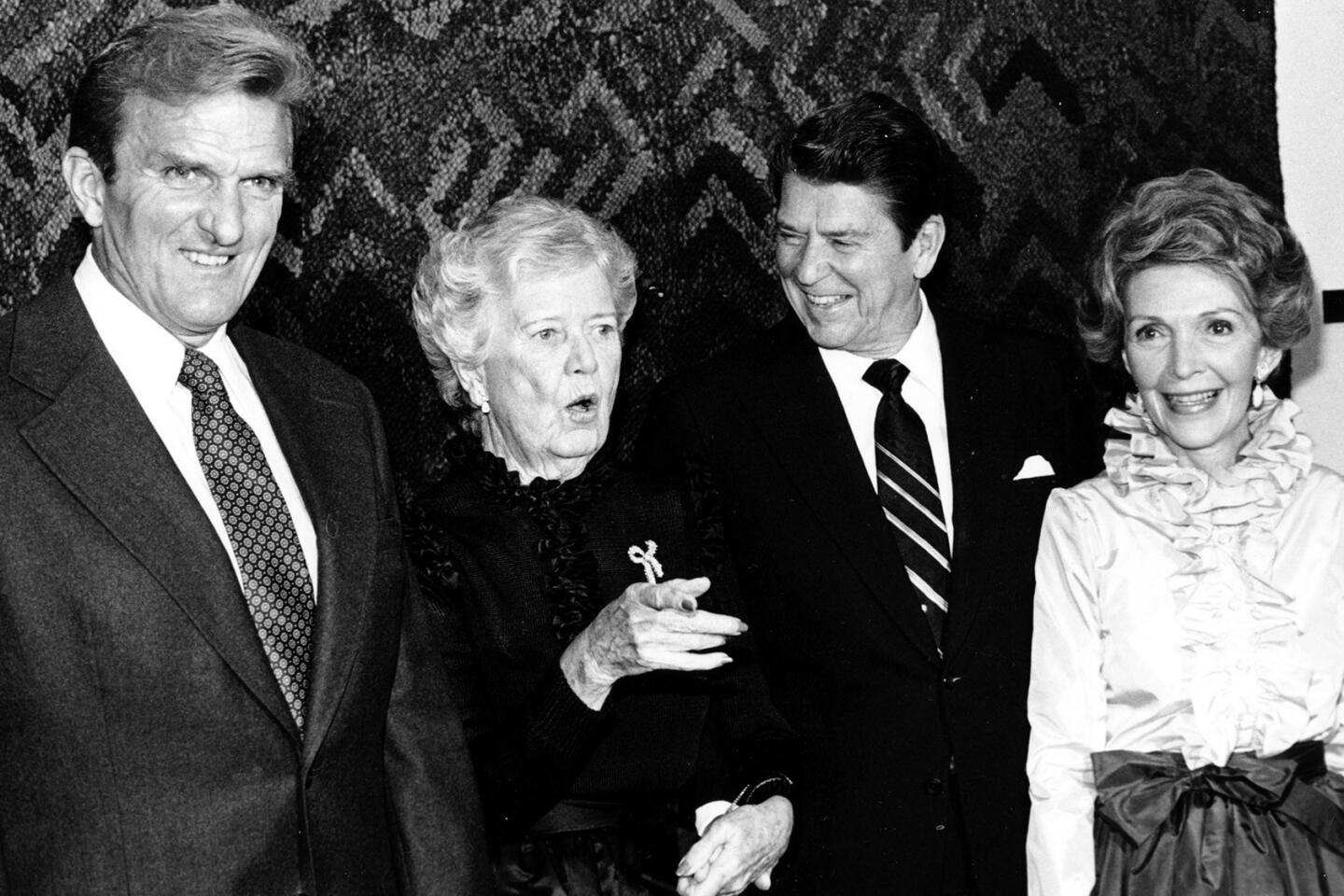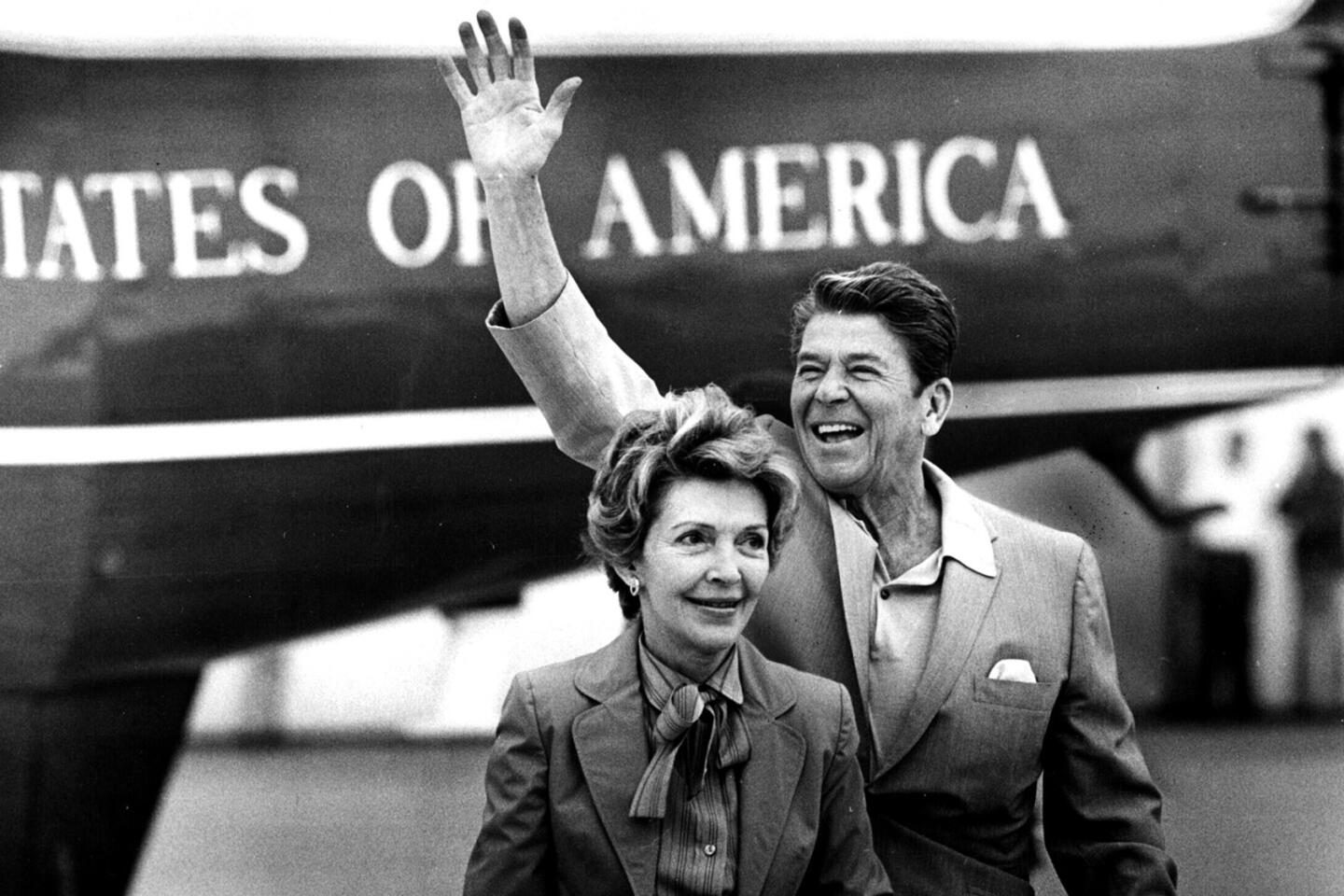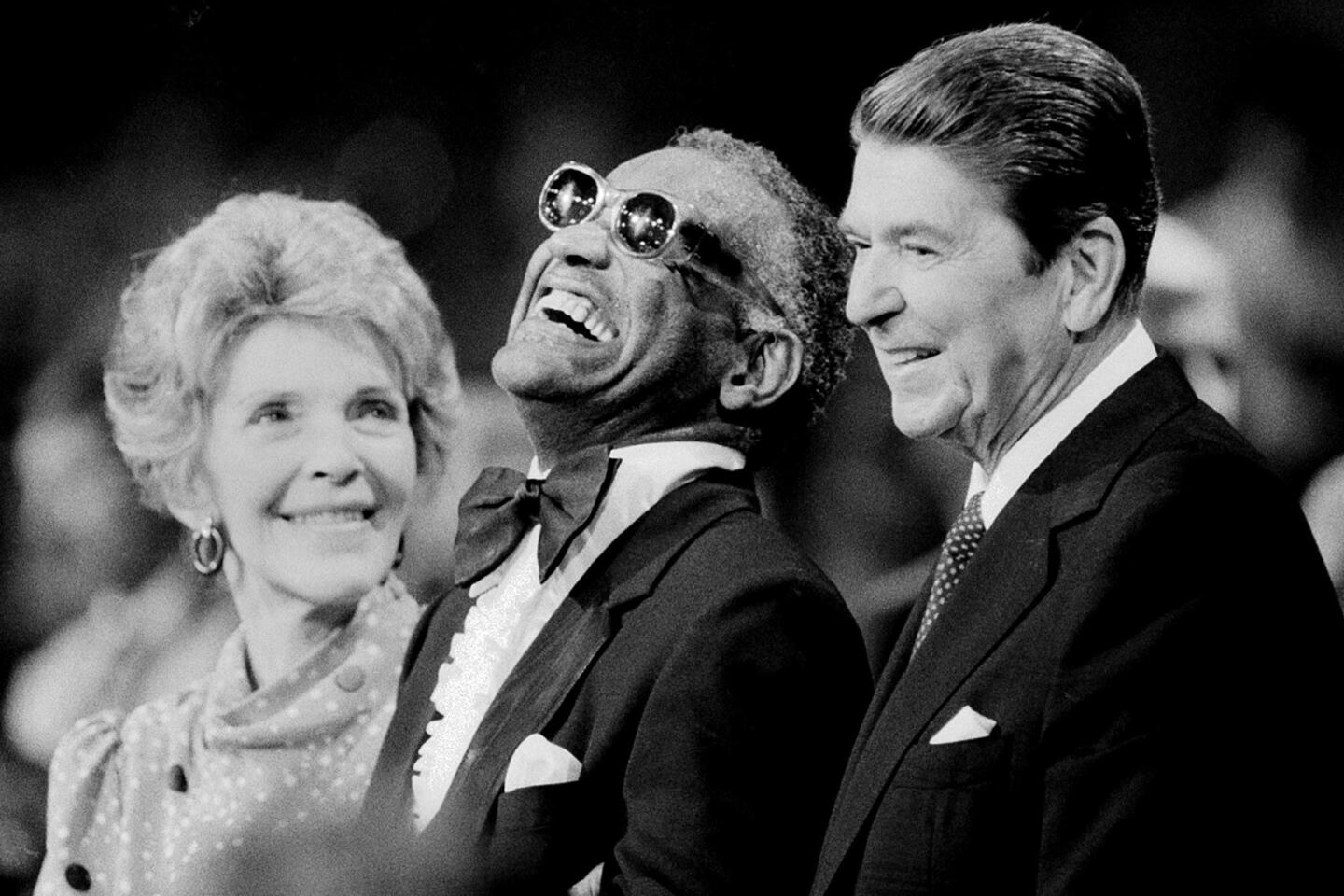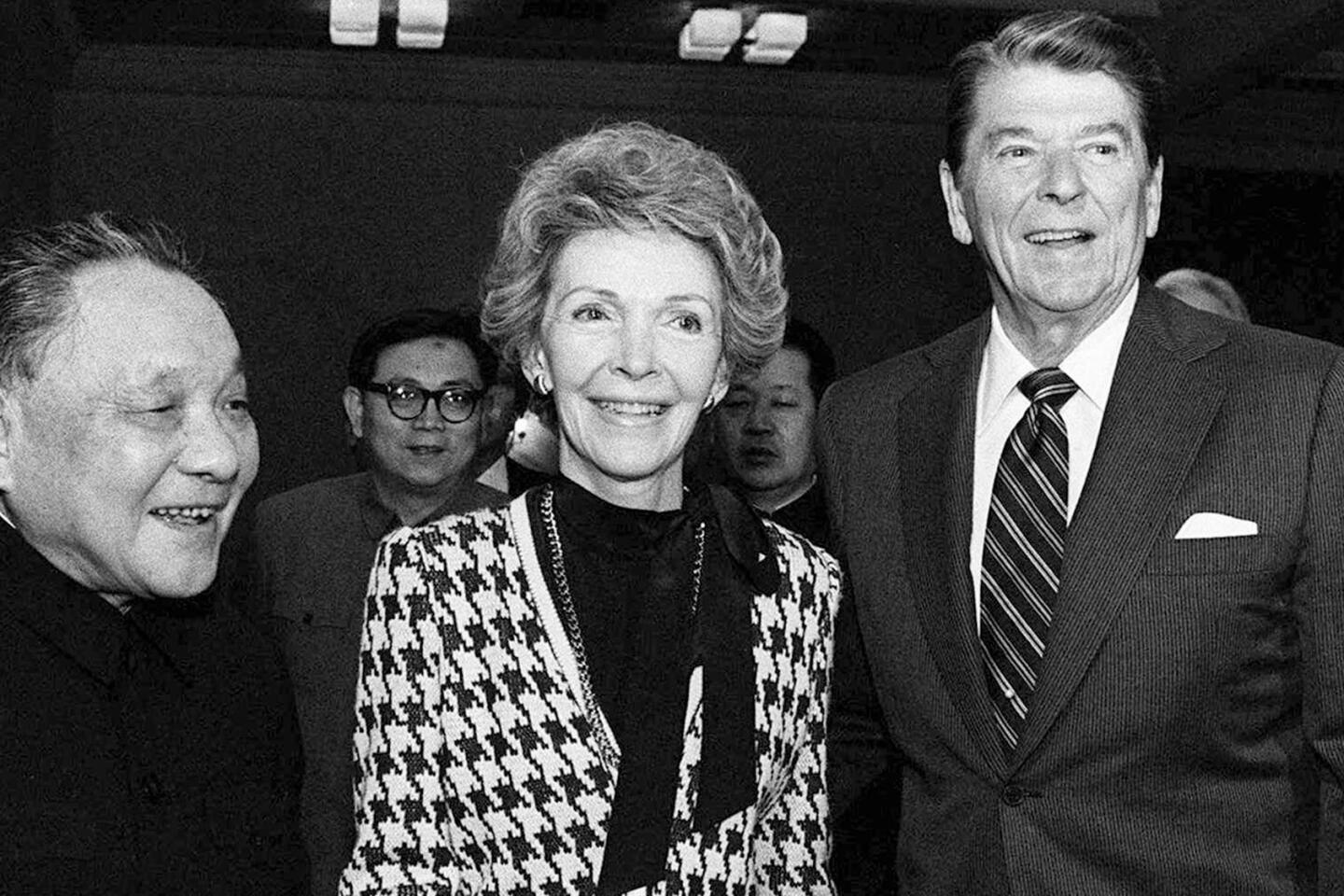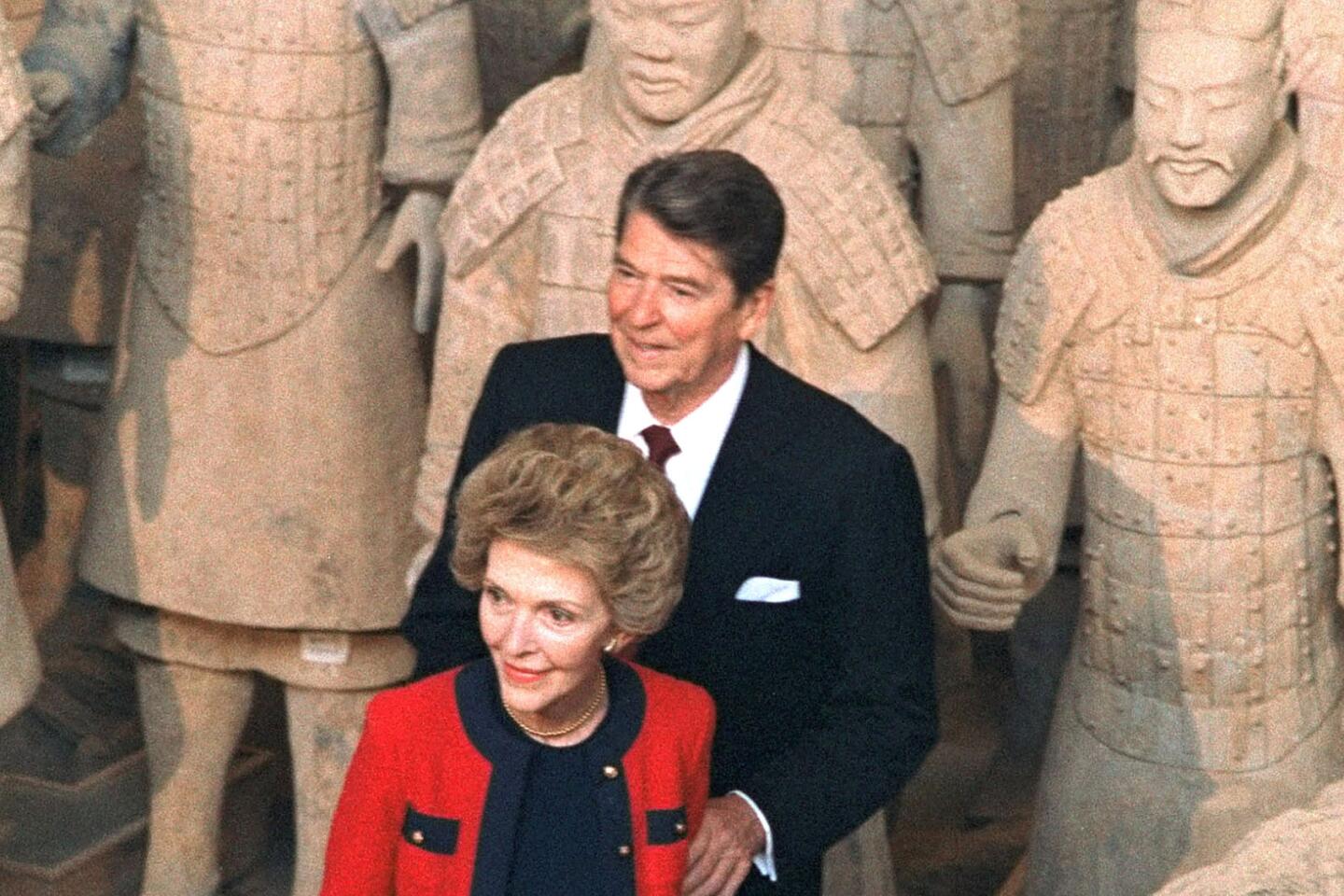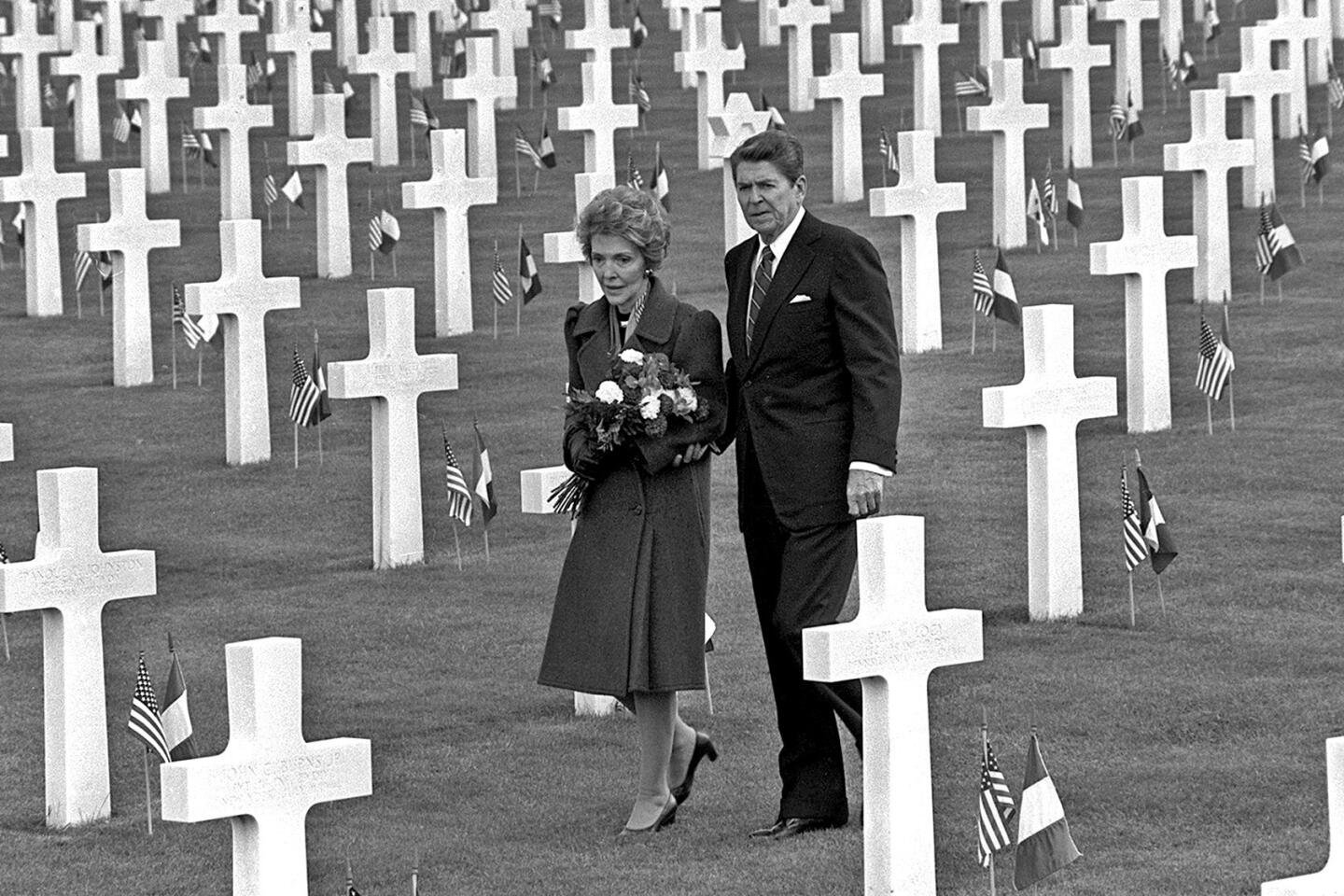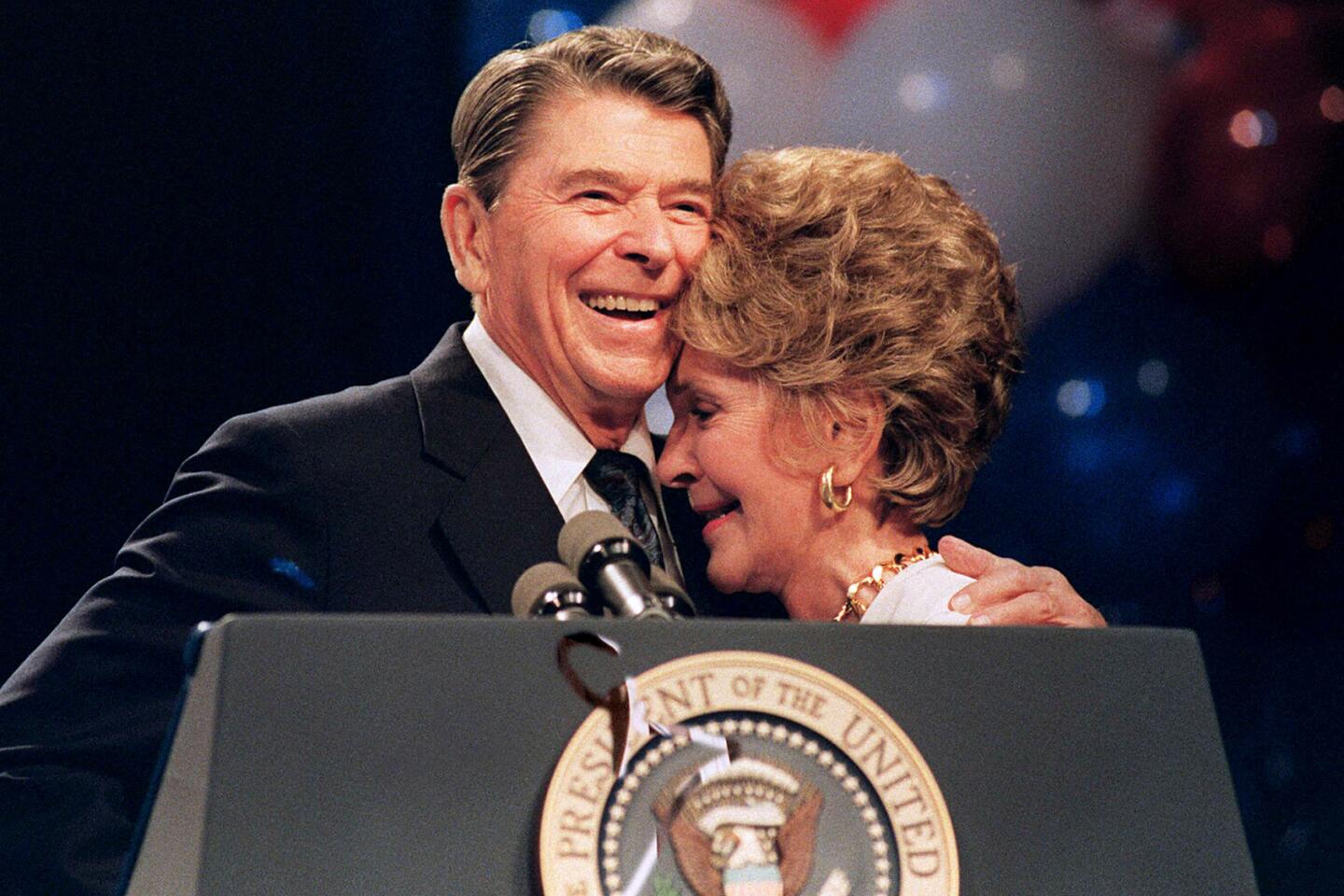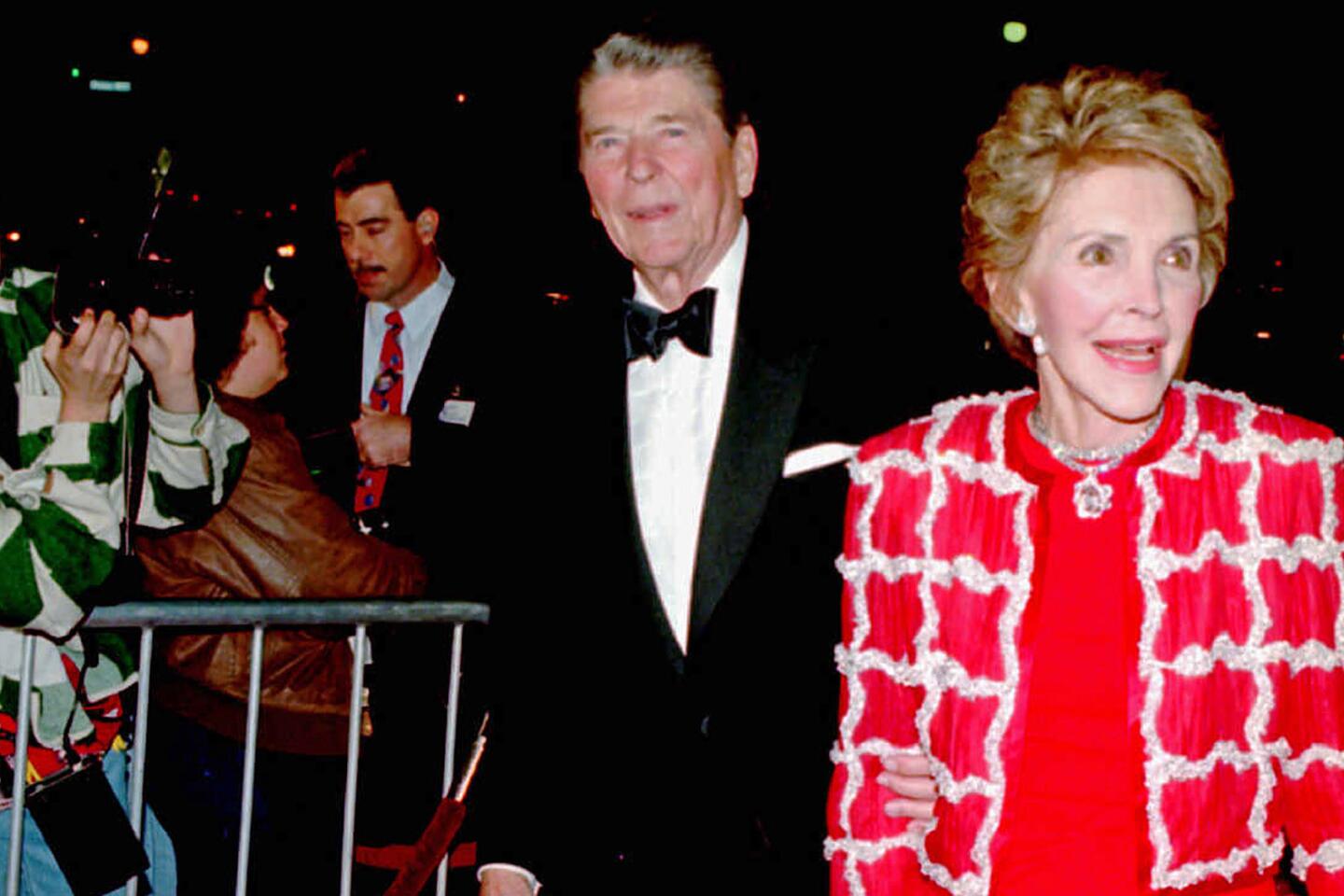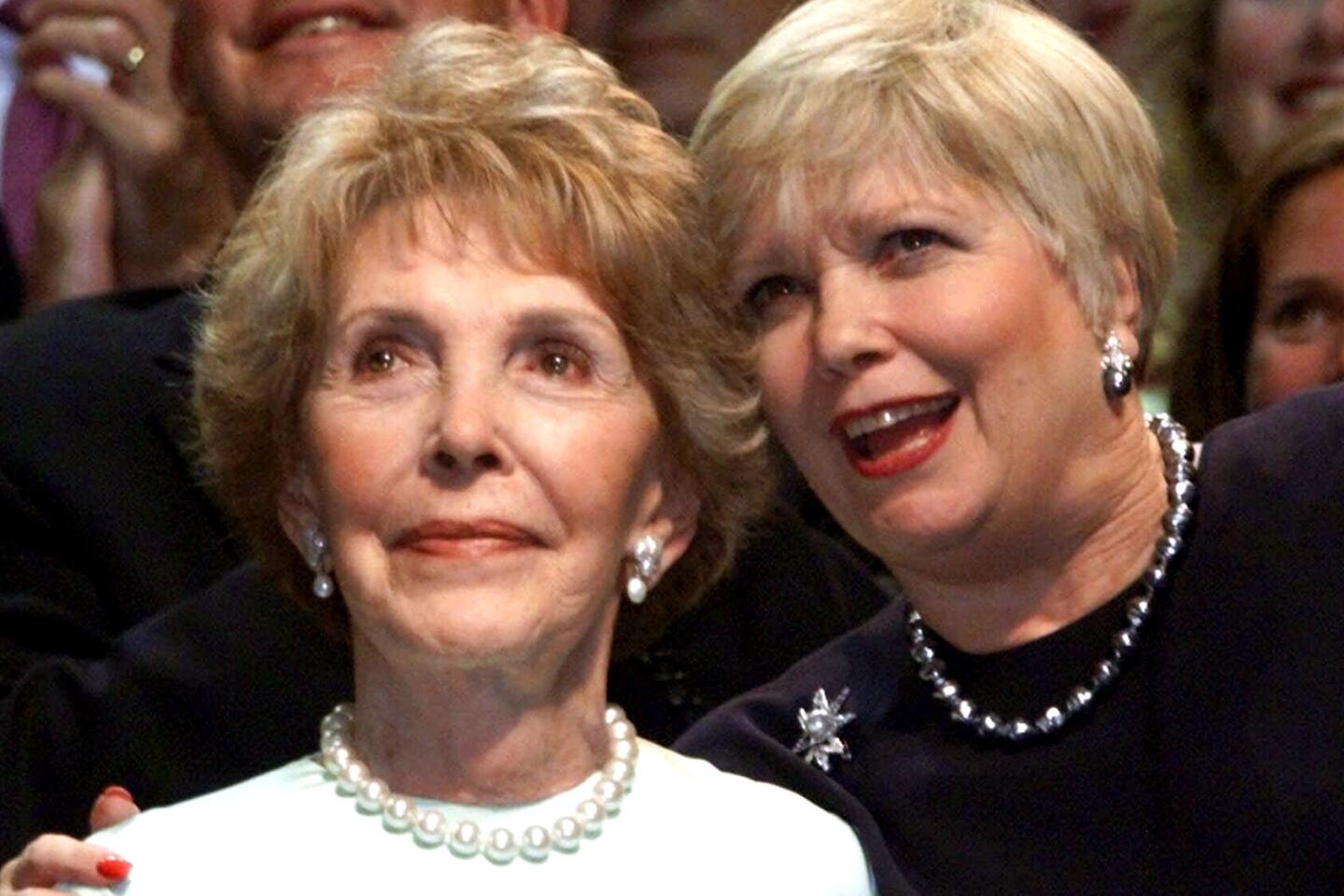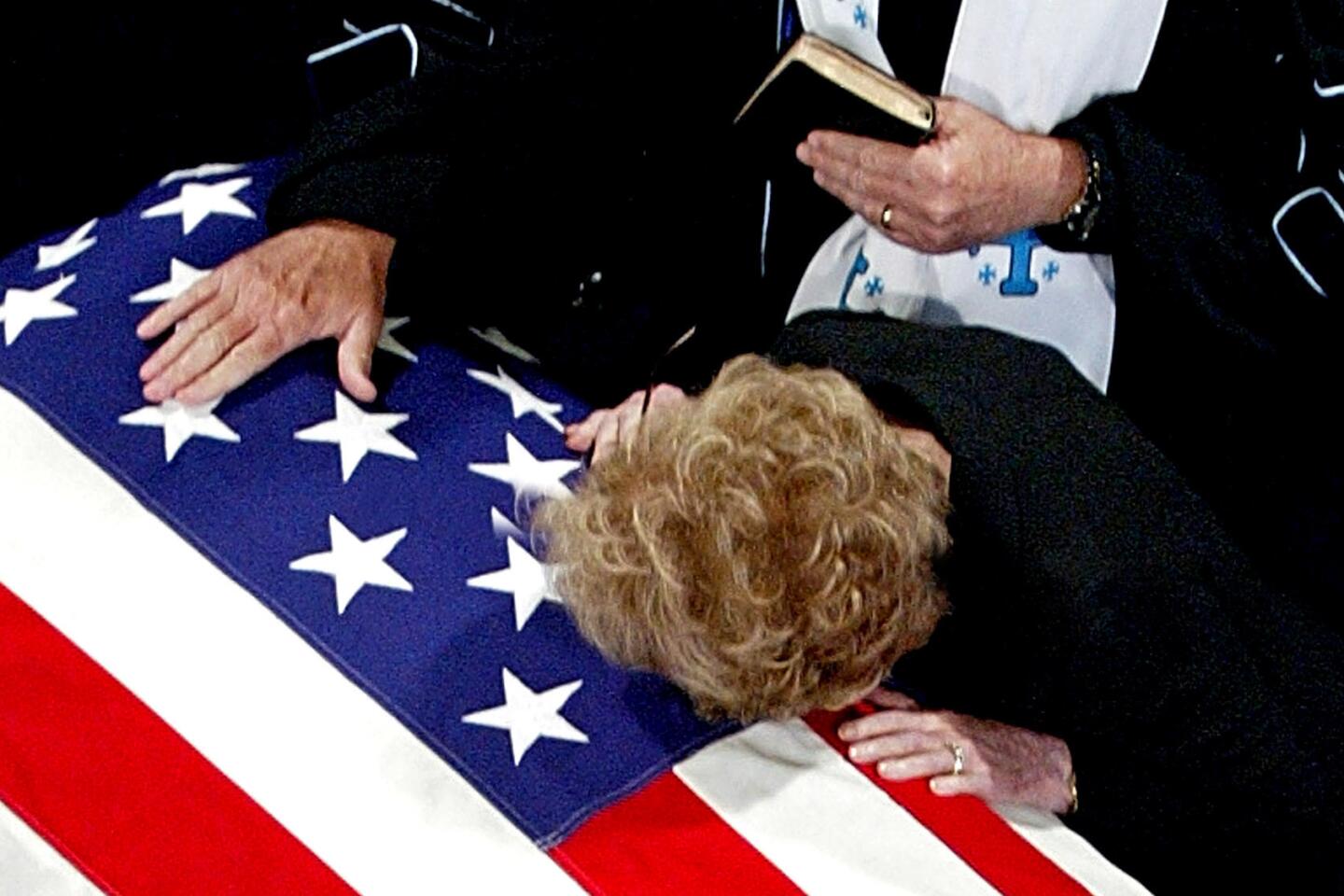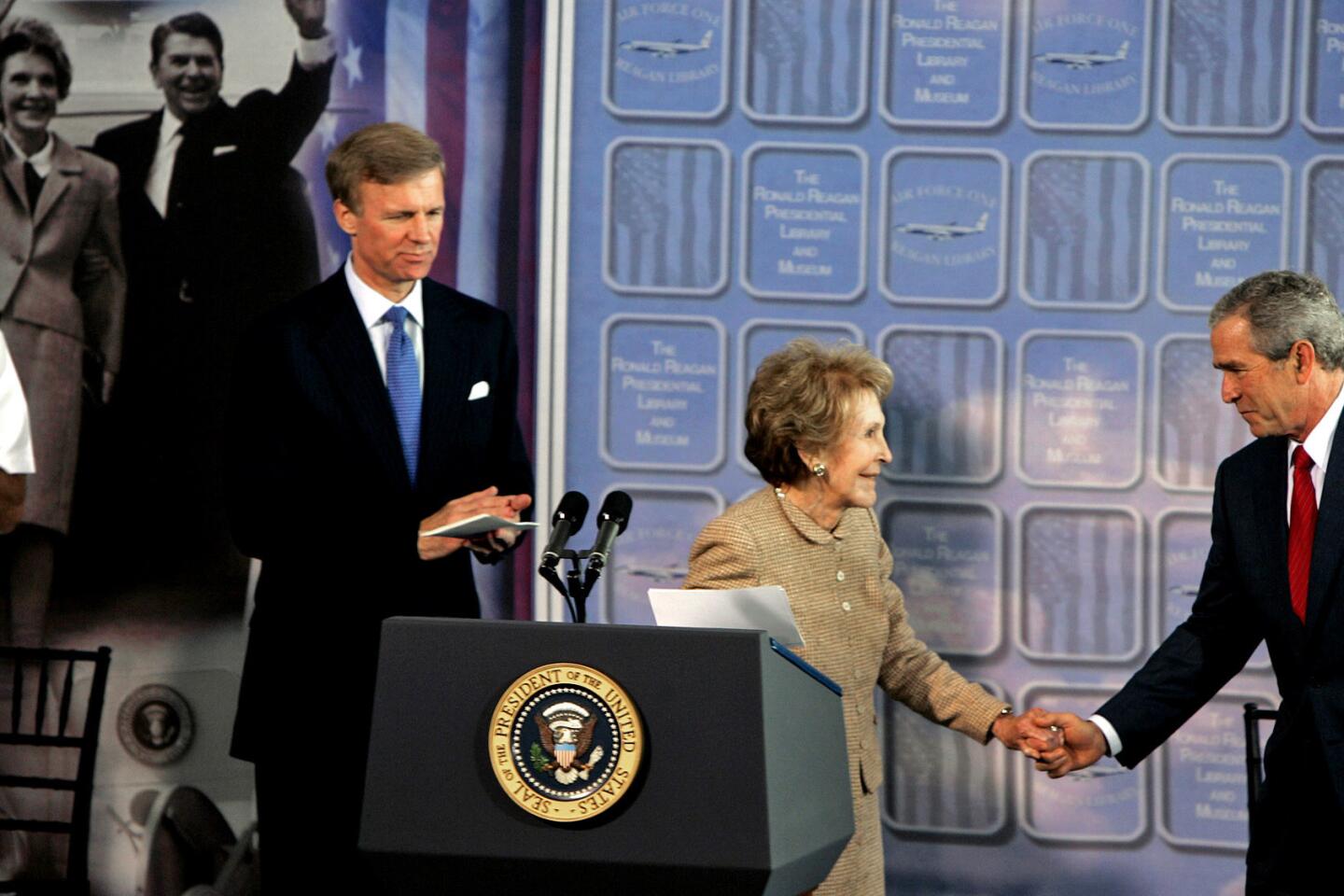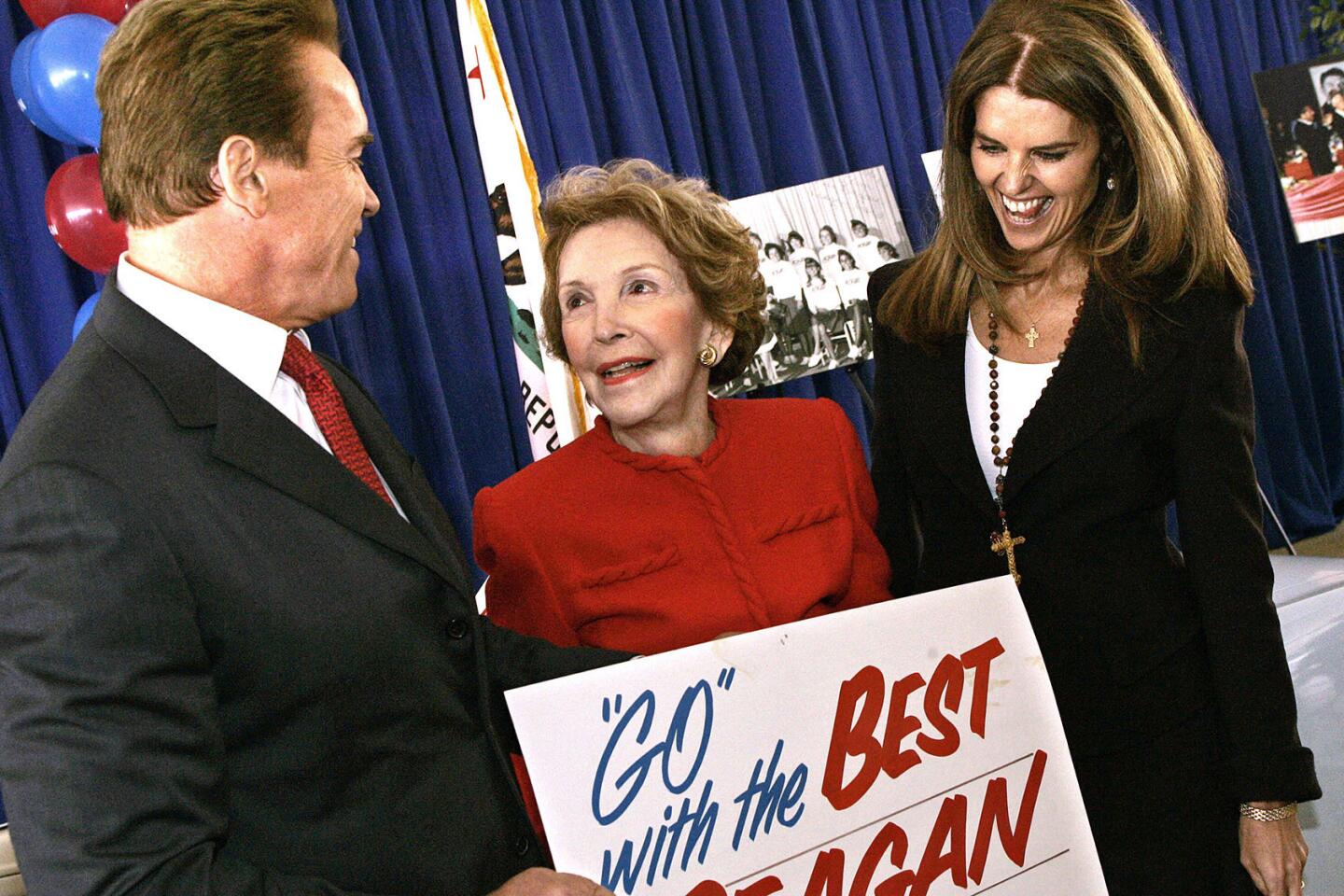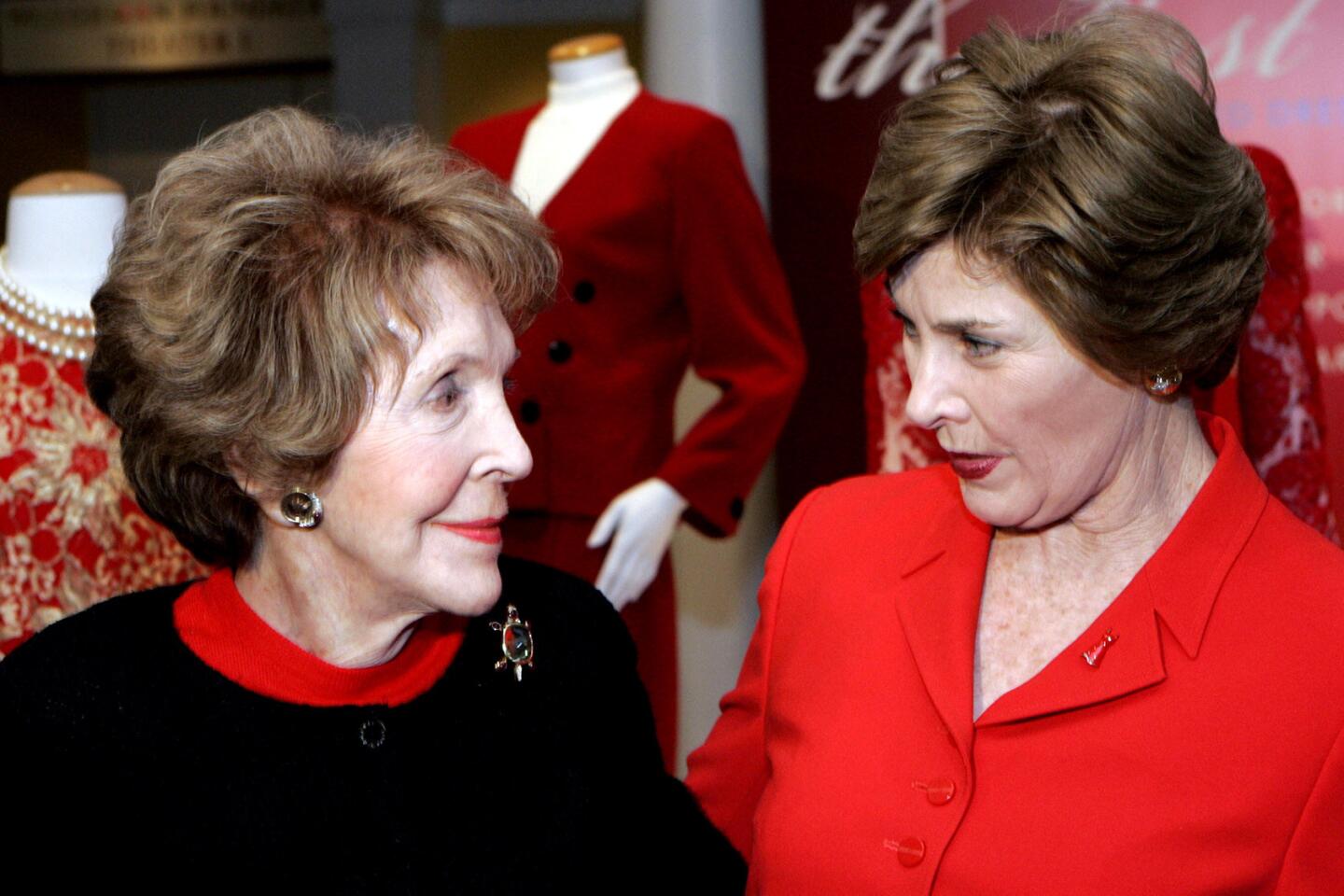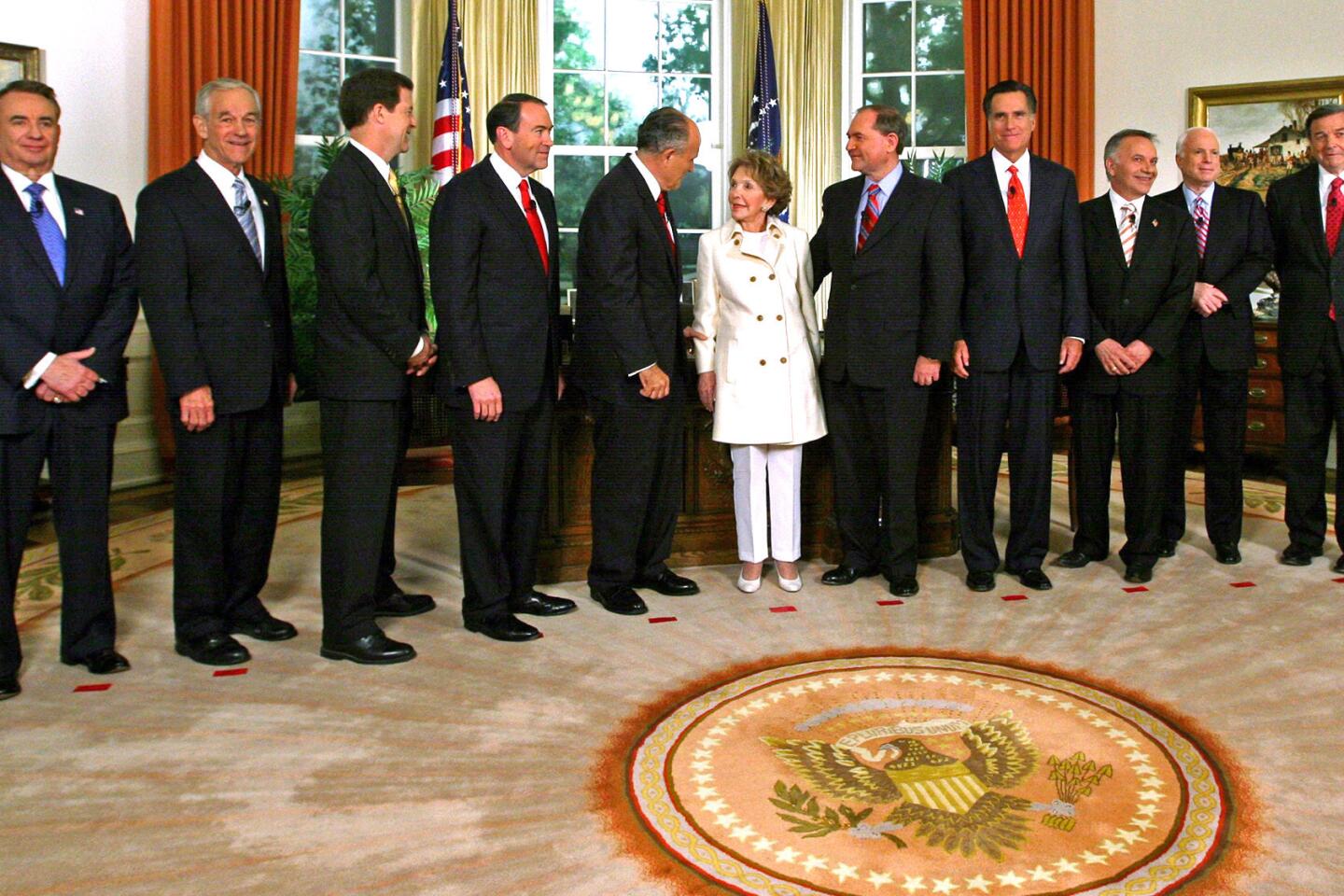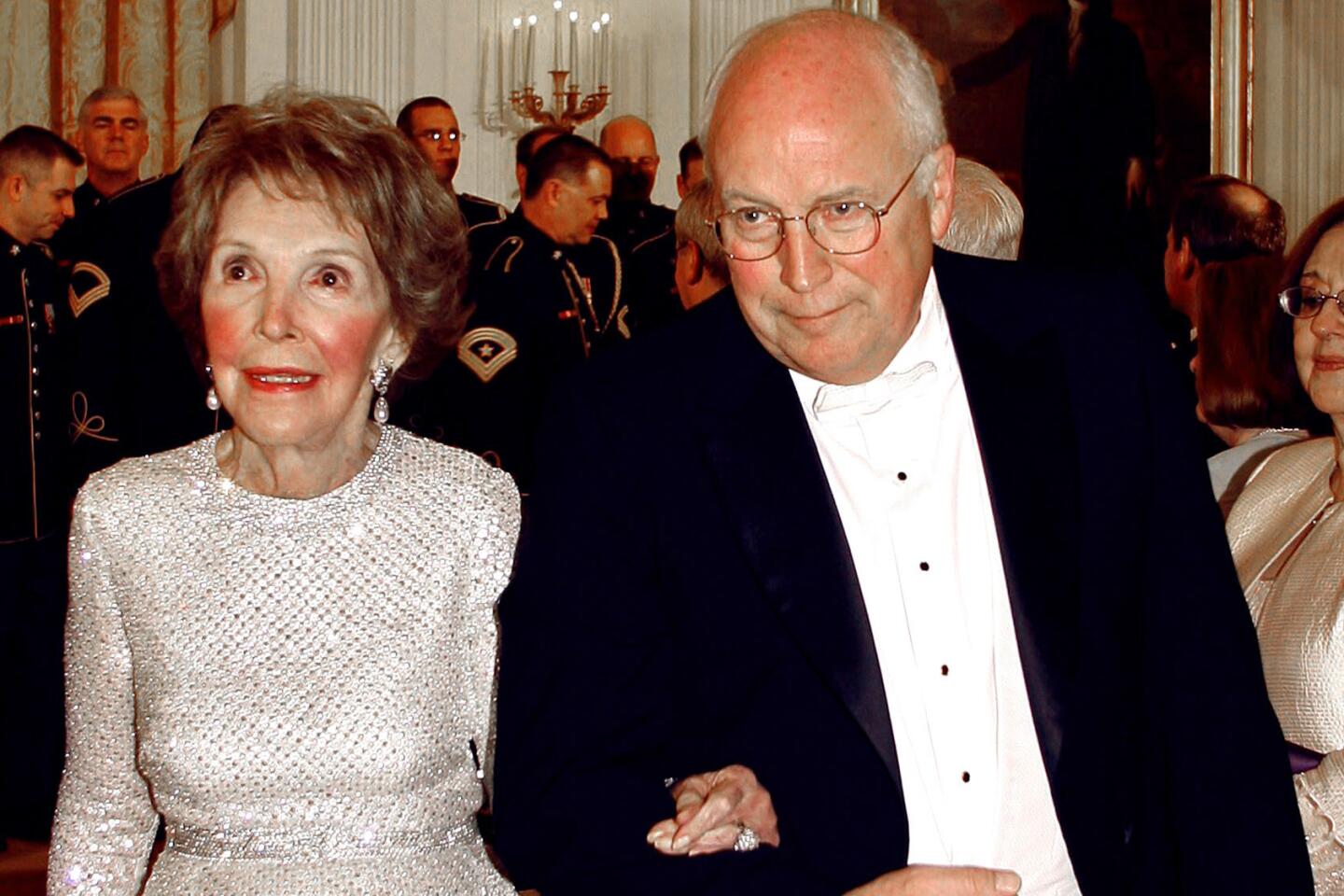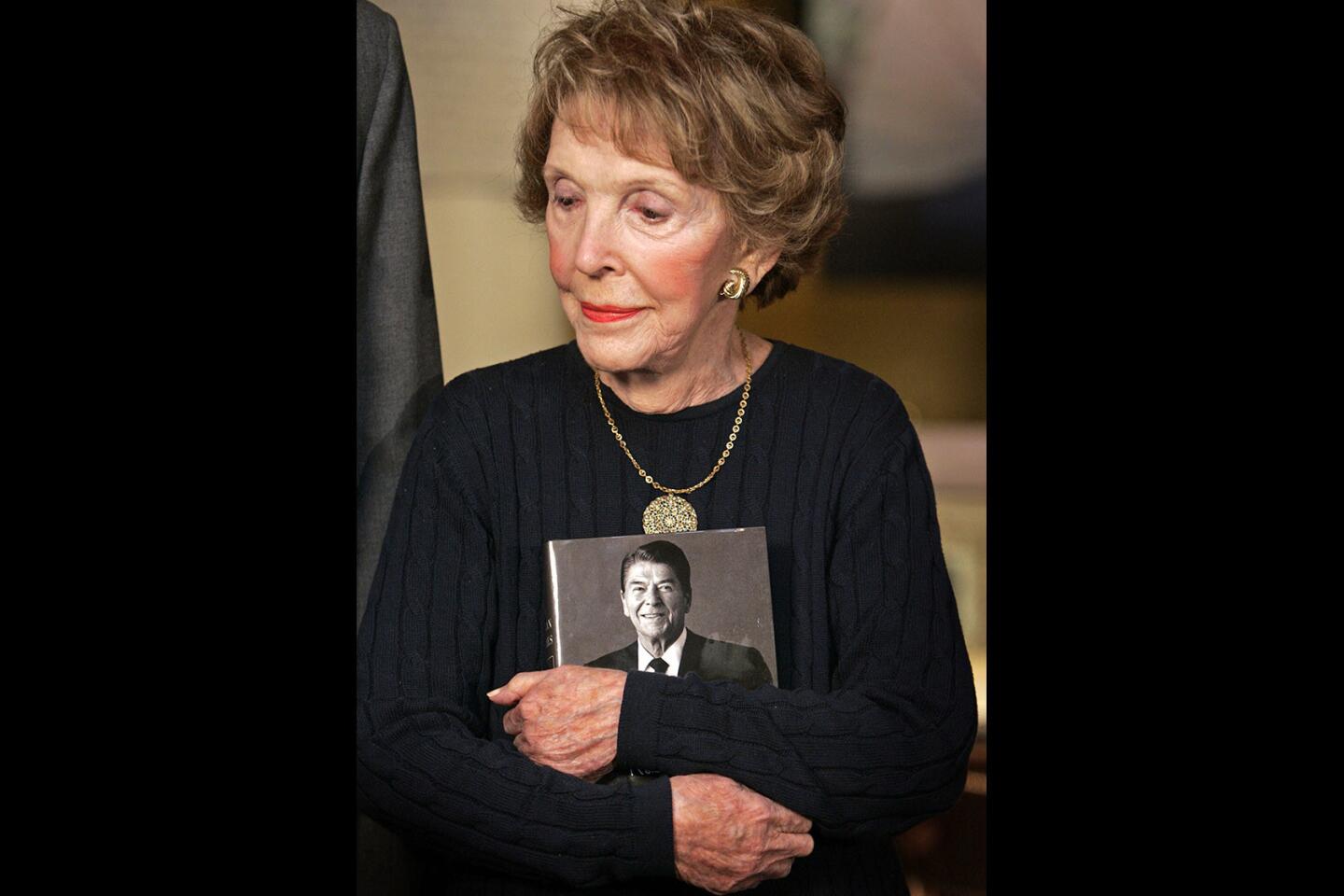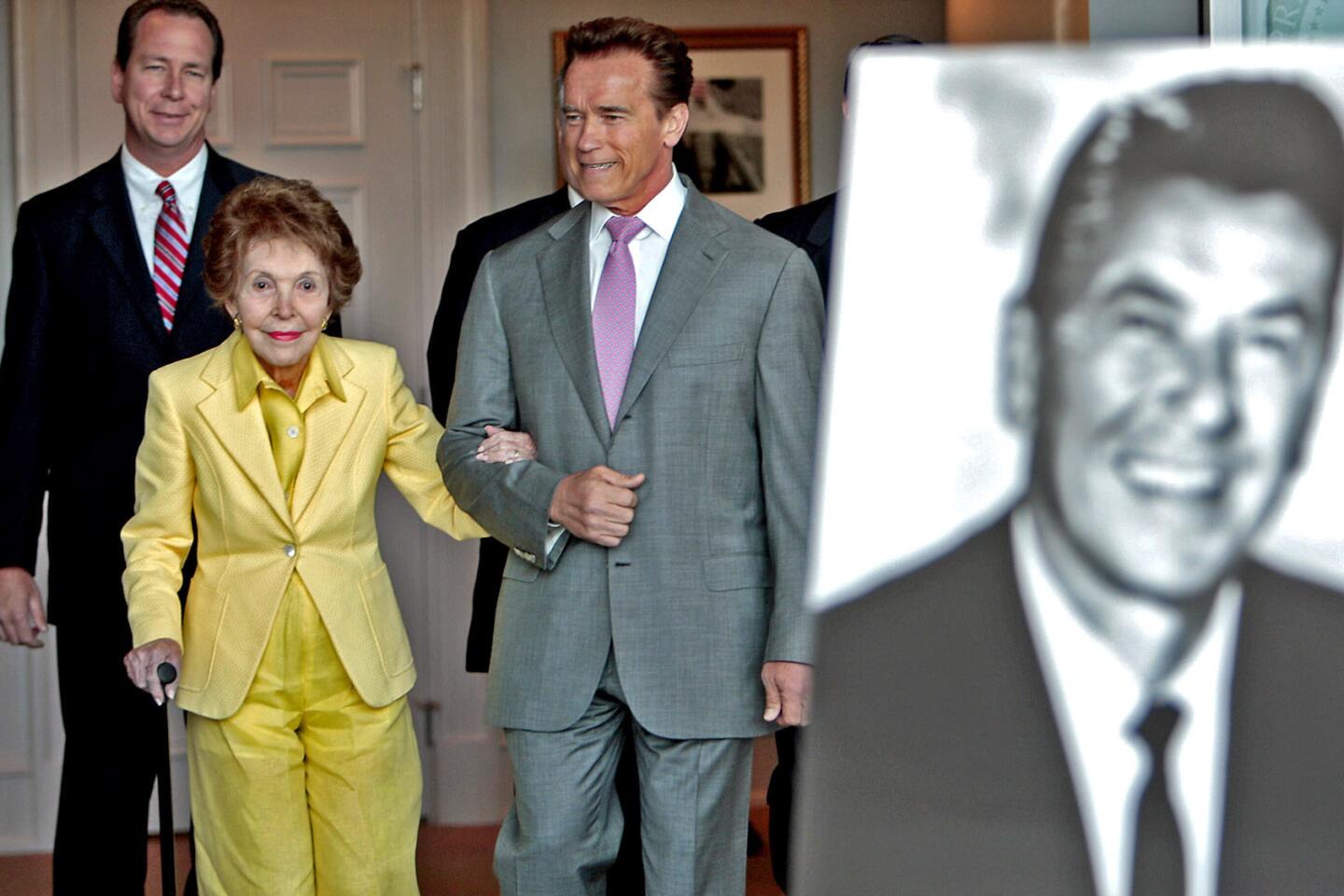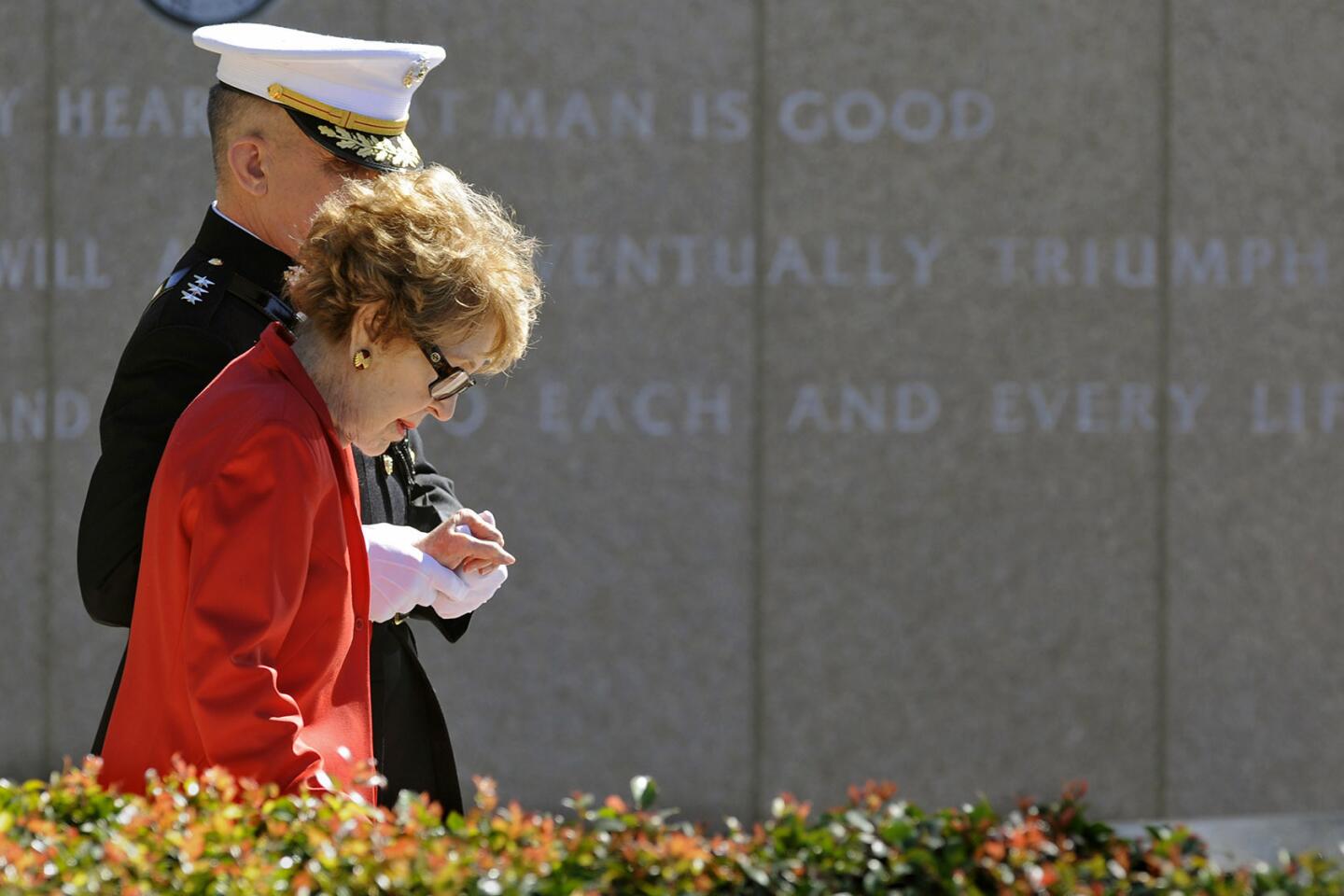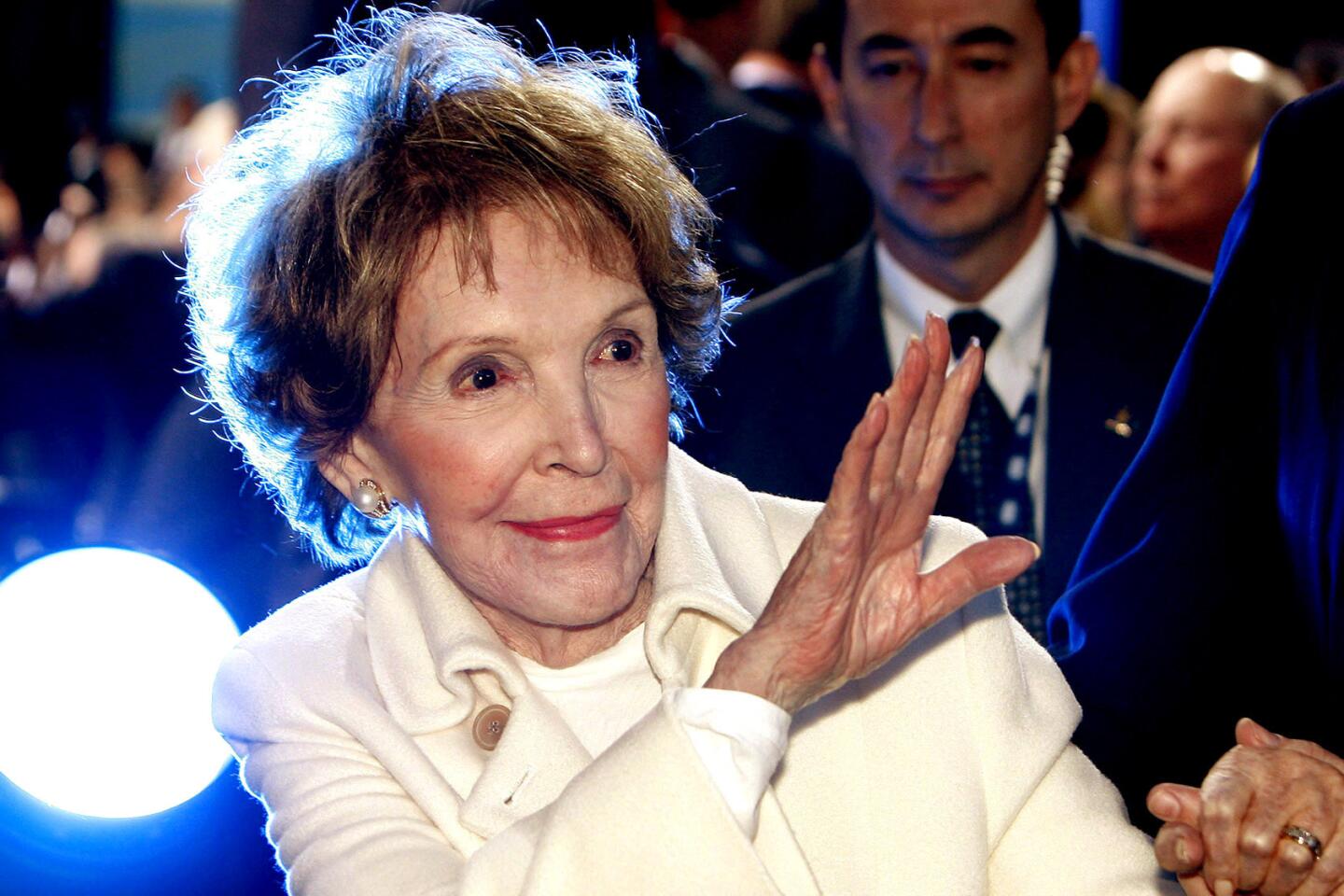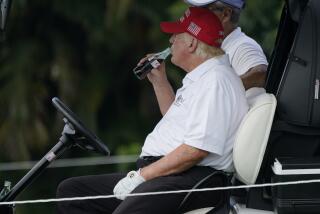‘Just Say No’ anti-drug campaign helped define Nancy Reagan’s legacy
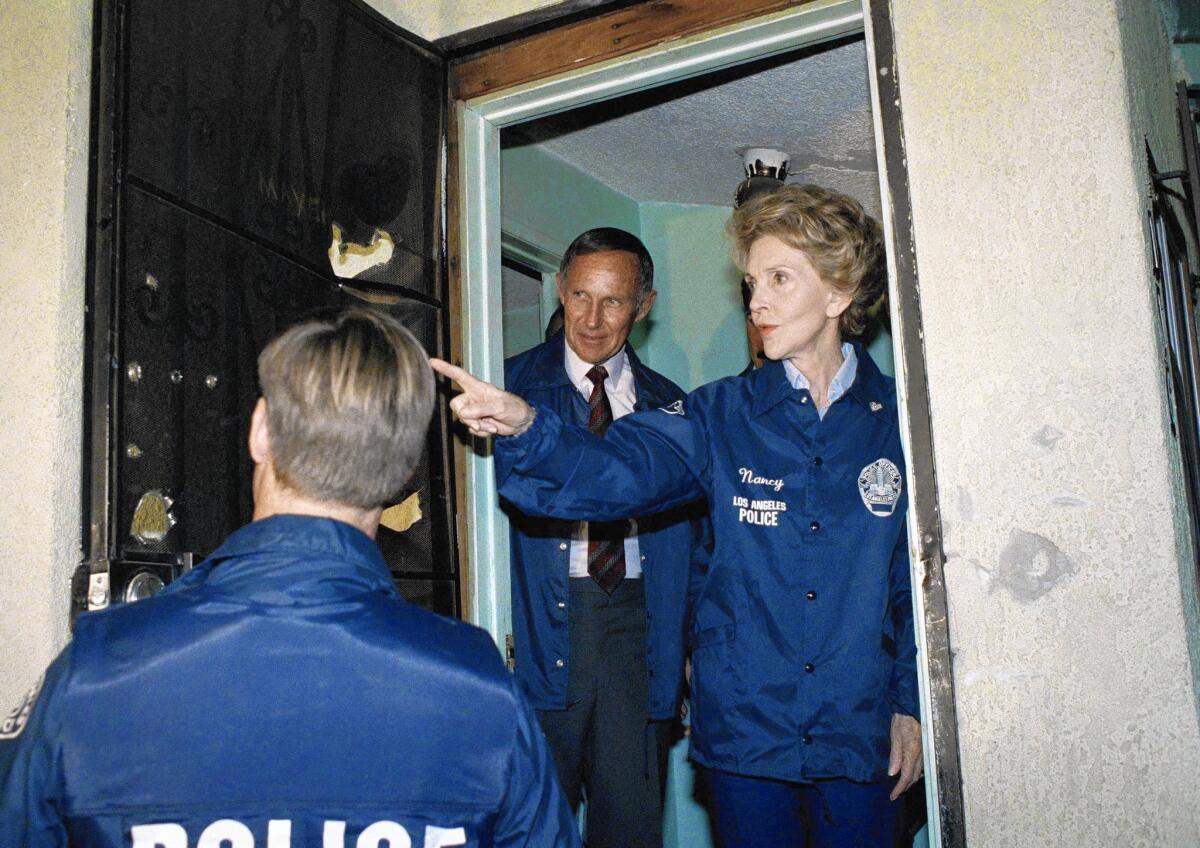
Drugs already had a strong grip in Compton High School when Maple Cornwell became assistant principal in 1983. Crack cocaine was just making its debut.
Educators had few tools to fight what would quickly turn into an epidemic.
Into this void came the voice of Nancy Reagan, with a message for children around the nation: “Just Say No.”
The campaign against drugs became Reagan’s most memorable achievement — lauded by some for showing the destruction addiction wrought, condemned by others who say it helped lead to mass incarceration and demonized black communities, and shrugged off by many who thought the message was naively simplistic and ineffectual.
“I don’t think students really got the message,” Cornwell said.
She said the pull of drugs was just too strong: “I think once drugs started to come in, it just took over students’ mind-sets, it took over their goals.”
From the early days of her husband’s presidency, Nancy Reagan decided to focus on the anti-drug cause. She said she came up with the name of her campaign at a meeting with schoolchildren in Oakland, when a girl asked her, ‘Mrs. Reagan, what do you do if somebody offers you drugs?’”
“Just say no,” the first lady replied.
Schools around the country formed “Just Say No” clubs, in which students did community service and made pledges to not try drugs. The refrain became the mantra of the anti-drug movement and greatly raised Reagan’s profile as first lady. She appeared on hit shows such as “Dynasty” and “Diff’rent Strokes” to deliver her message and made hundreds of appearances around the country.
“Without Nancy Reagan, there would not have been the public climate to support drug abuse prevention,” said Ivy Cohen, president of the Just Say No Foundation from 1987 to 1997. “She galvanized attention to the issue.”
In 1981, when President Reagan took office, more than 1.3 million people tried cocaine for the first time, according to estimates from the Office of National Drug Control Policy. In 1991, that number was down to below 500,000.
Join the conversation on Facebook >>
Dr. Herbert Kleber, director emeritus of the Columbia University Division on Substance Abuse, said tolerance of drugs in the 1960s and 1970s had led to vast abuse. Even among circles of professionals in staid suburbia, lines of cocaine were laid out at parties much as their parents had mixed highballs.
Kleber said Reagan’s campaign probably helped change public opinion a notch, but many other factors did as well. The death of star college basketball player Len Bias of a cocaine overdose in 1986 shocked many people unaware of the stimulant’s dangers. And the crack cocaine epidemic and the gang warfare that came with it ripped apart neighborhoods and revealed to America deeply destructive aspects of illegal drug use.
“My experience is ‘Just Say No’ wasn’t terribly effective,” Kleber said. “But it was better than not doing it.”
In 1989, no longer first lady, Reagan came to Los Angeles to boost her image as an anti-drug crusader. With dozens of reporters in tow, she and Police Chief Daryl F. Gates watched as officers stormed a suspected “rock house” in South Los Angeles.
Police arrested 14 men and women on a variety of drug charges and allegedly confiscated about a gram of crack. Officers gave her a tour of the house before she retired to an air-conditioned RV, “freshened her makeup and then waded out among the cameras,” according to a Times story.
“I saw people on the floor, rooms that were unfurnished … all very depressing,” the former first lady reported.
Ethan Nadelmann, founder and executive director of the Drug Policy Alliance, a New York City group working to end the war on drugs, said “Just Say No” was part of an unrealistic goal of a “drug-free society” that led to mass incarceration in minority communities and beyond, “something we’re only beginning to recover from now.”
He said Reagan’s message might have resonated with younger children, but not the adolescents who needed to understand the realities of drugs. “The ‘Just Say No’ campaign made about as much sense as a just-say-no campaign with respect to sex education,” he said.
“Teachers, educators, the government, parents need to provide something other than an abstinence-only message for the majority of young people who do in fact end up trying, experimenting or using drugs before they turn 18.”
In Compton, instead of “Just Say No” clubs, Cornwell and other teachers tried to combat drug use among students by connecting with them one-on-one, and starting clubs or activities that kept them busy after school. She said that the problem was serious, but that a minority of students were drug users.
Others say the message resonated. In Northridge, Napa Street Elementary School Principal Brenda Fernandez said the slogan became a regular and serious topic of conversation with her parents, and guided her as a child.
Now, Fernandez, 44, said it resonates with her students. Last week, her school teamed up with the Los Angeles Police Department’s baseball team for a “Just Say No” program that expanded on Reagan’s message, asking students to take pledges against drugs, gangs, crime and bullying.
Fernandez said not everyone will identify with the slogan but its simplicity allows educators to reinforce important topics with children.
“It was such a part of our culture that it’s been one of those things that’s ingrained in us,” Fernandez said. “It’s just one of those catch phrases that will be part of us for ages to come.”
[email protected] | Twitter: @joemozingo
[email protected] | Twitter: @sonali_kohli
[email protected] | Twitter: @zahiratorres
Times staff writer Howard Blume contributed to this report.
MORE ON NANCY REAGAN
Nancy Reagan dies in Los Angeles at 94: Former first lady was President Reagan’s closest advisor
How Nancy Reagan, influential former first lady, is being remembered around the nation
From ‘Diff’rent Strokes’ to high fashion, Nancy Reagan was giant of 1980s
More to Read
Sign up for Essential California
The most important California stories and recommendations in your inbox every morning.
You may occasionally receive promotional content from the Los Angeles Times.
